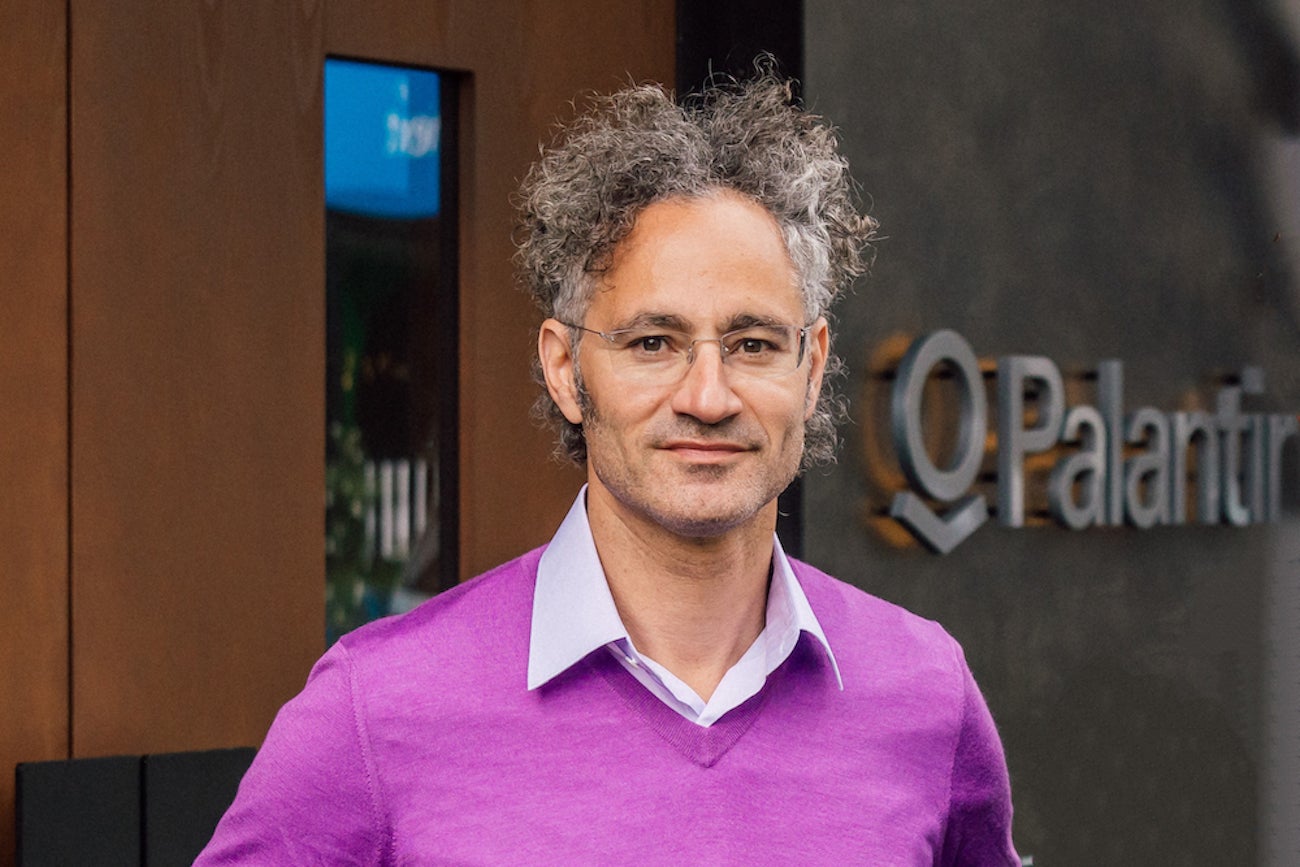Alex Karp Biography: The Philosopher CEO at the Heart of Palantir and Power
Quick Facts
Date of Birth: October 2, 1967
Nationality: American
Real-Time Net Worth: $9.7 billion (as of May 2025)
Residence: Grafton County, New Hampshire, USA
Early Life and Education
Alex Karp grew up in Philadelphia, raised in a biracial household that blended science and art—his father was a pediatrician, his mother an artist. Dyslexic as a child, Karp developed unconventional ways of processing the world, leaning heavily on abstract thinking. That trait would later define both his personal philosophy and corporate vision.
He studied philosophy at Haverford College, earned a law degree from Stanford, and capped off his education with a Ph.D. in neoclassical social theory from Goethe University in Frankfurt. His thesis explored how language and aggression shape culture—ideas that still color how he thinks about technology and democracy.
Career Beginnings
Karp spent time in Europe after earning his doctorate, working at the Sigmund Freud Institute in Frankfurt before founding an investment firm called Caedmon Group. He wasn’t a typical Silicon Valley insider. His entry into tech came not from coding but from conversation—big, philosophical ones.
It was through Stanford that he met Peter Thiel, and eventually, the seed for Palantir was planted: what if software could help governments make smarter, faster, safer decisions?
Rise to Wealth
In 2003, Karp co-founded Palantir Technologies, a data analytics firm designed not for mass consumers, but for intelligence agencies and national defense. Early funding came from In-Q-Tel, the CIA’s venture arm. The goal was to build platforms that could make sense of massive, disjointed data in high-stakes scenarios—terrorism, war, pandemics.
Karp became CEO in 2004 and has led the company ever since. Palantir went public in 2020. By 2025, amid surging demand for AI-integrated systems, Karp’s personal net worth had climbed past $9 billion.
How He Made His Fortune
Karp’s fortune is rooted in his long-standing leadership of Palantir, which builds complex software platforms used by governments and corporations to analyze massive data sets and make critical decisions.
Palantir’s three core products are:
-
Gotham – Built for defense, intelligence, and law enforcement. Used by the U.S. military, NATO, and global agencies to track threats, plan operations, and manage logistics.
-
Foundry – Used by businesses across sectors (from healthcare to aerospace) for supply chain optimization, forecasting, and real-time decision-making.
-
Apollo – A cloud-agnostic infrastructure system that powers deployment of Palantir’s tools at scale, especially in high-security environments.
Clients include the U.S. Department of Defense, CIA, FBI, NHS (UK), Ferrari, Merck, Airbus, BP, and many more. In 2024 alone, Palantir posted nearly $2.9 billion in revenue, much of it driven by new AI deployments.
In 2025, Karp adopted a Rule 10b5-1 stock sale plan to offload nearly 10 million shares—worth over $1.2 billion—but he remains firmly in control of the company.
Major Achievements
-
Co-founded Palantir in 2003, a company now central to U.S. and NATO defense infrastructure
-
Took Palantir public in 2020, with the stock rising significantly in 2023–2025
-
Named to TIME’s 100 Most Influential People in 2025
-
Published “The Technological Republic”, a new book advocating for a stronger tech-government alliance
-
Deployed Palantir tools pro bono to Ukraine, providing battlefield data systems to aid resistance against Russia
-
Led Palantir into commercial dominance, serving major pharma, manufacturing, and energy clients globally
Philanthropy and Social Impact
Karp keeps philanthropy low-key. He made headlines for helping rebuild the cabin of “River Dave,” a hermit evicted from the New Hampshire woods, with a personal donation of $180,000.
Palantir, however, defines his broader social impact. Karp frames its mission as a defense of Western democratic institutions, a rare stance in a tech world often allergic to state partnerships. He frequently warns that ignoring government infrastructure is a luxury that only peaceful times can afford.
Personal Life and Interests
Karp lives off the radar in rural New Hampshire. He practices Tai Chi, skis cross-country, and doesn’t participate in the usual tech-world pageantry. He wears flowing shirts, avoids social media, and refers to his various homes as “ski huts I sometimes work from.”
He’s both reclusive and intellectually intense—known for quoting Nietzsche, criticizing Silicon Valley, and being bluntly skeptical of hype.
Business Philosophy and Strategies
Karp isn’t shy about his ideological bent. He supported Kamala Harris in the 2024 election, has criticized Silicon Valley’s obsession with ad revenue, and routinely calls for stronger partnerships between the tech sector and democratic governments.
Yet in 2025, he surprised many by praising Elon Musk as the most “qualified person” to reshape the U.S. government. Like Musk, Karp believes America needs more “hard power” tools to safeguard its values—especially in a world tilting toward authoritarianism.
His core belief: software should not just entertain or optimize. It should protect civilization.
Challenges and Controversies
Palantir’s work with U.S. law enforcement and immigration agencies—particularly ICE—has triggered fierce backlash. Critics have called out its role in surveillance and enforcement, and Karp has often found himself defending the company’s contracts as necessary evils in a flawed world.
He also drew criticism in 2025 for staying quiet during protests over student detentions linked to Gaza demonstrations, even while previously condemning anti-Israel rhetoric. That double standard hasn’t gone unnoticed.
Meanwhile, Palantir’s tight alignment with U.S. defense under Trump 2.0 has made some international clients uneasy. Karp has insisted that “what’s good for America is good for Americans—and very good for Palantir.” But for clients outside the U.S., that stance is increasingly complex.
Current Focus and Future Plans
Karp is doubling down on AI, geopolitics, and what he calls “digital sovereignty.” In May 2025, at the Saudi-US Investment Forum, he openly criticized Europe for “giving up” on AI innovation, contrasting that with rapid AI development in Saudi Arabia, the U.S., and parts of Asia.
Palantir’s current expansion focuses on:
-
Deepening military and defense contracts globally
-
Scaling Foundry and Apollo in commercial verticals
-
Advancing real-time AI tools for critical infrastructure and logistics
For Karp, this isn’t just business—it’s doctrine. Palantir’s mission, as he puts it, is to ensure “the most capable governments don’t lose to the most ruthless ones.” Whether that mission endures beyond him remains to be seen. But for now, he’s not stepping back. If anything, he’s pushing harder.
Favorite Quote
"The world is a messy place. Software alone can’t fix it. But the right software can help you understand it."
— Alex Karp
People Also Ask
What ethnicity is Alex Karp?
Alex Karp is of Jewish and African-American descent. He has spoken publicly about his mixed heritage and its influence on his worldview and leadership style.
Does Alex Karp have ADHD?
While Alex Karp has never officially confirmed an ADHD diagnosis, he has mentioned struggling with attention and focus during his early years—something he believes shaped his unconventional thinking.
How much of Palantir does Alex Karp own?
As of 2025, Alex Karp owns approximately 5% of Palantir Technologies, a stake valued in the billions depending on the company’s stock price and market cap.
How many languages does Alex Karp speak?
Karp is fluent in English and German. He earned his doctorate in Germany and has often spoken publicly in both languages.













